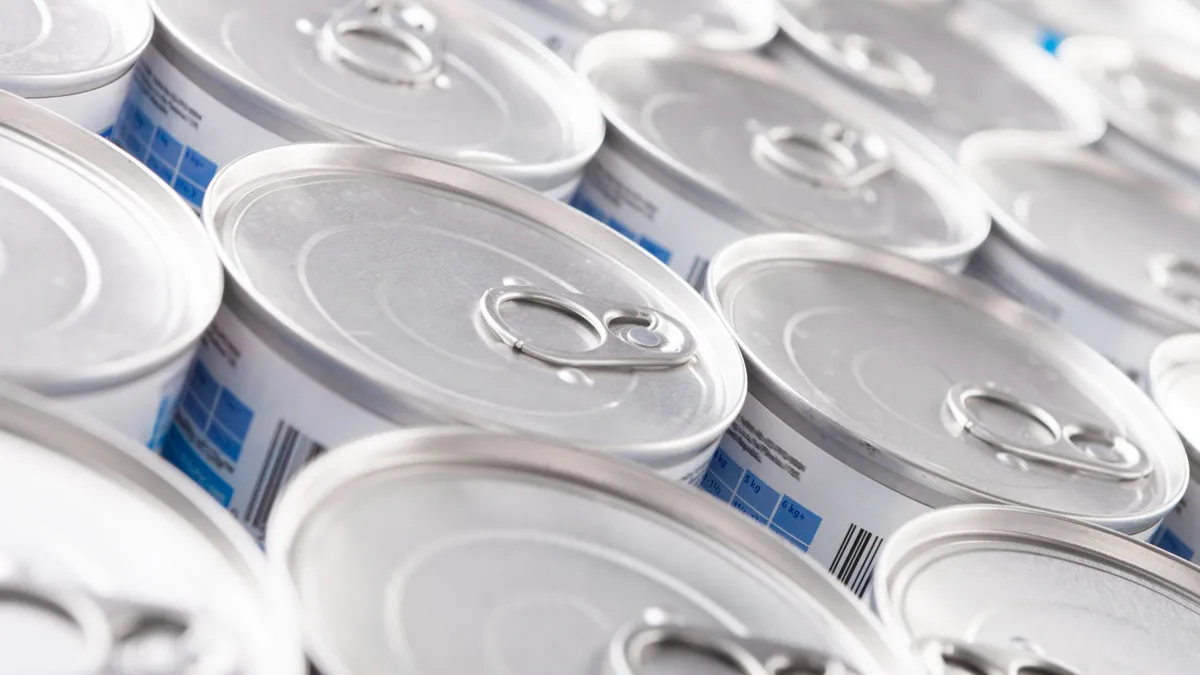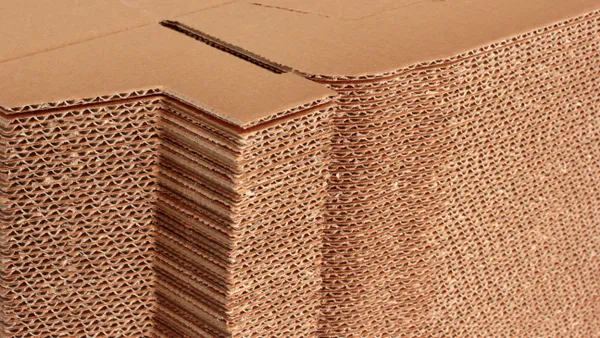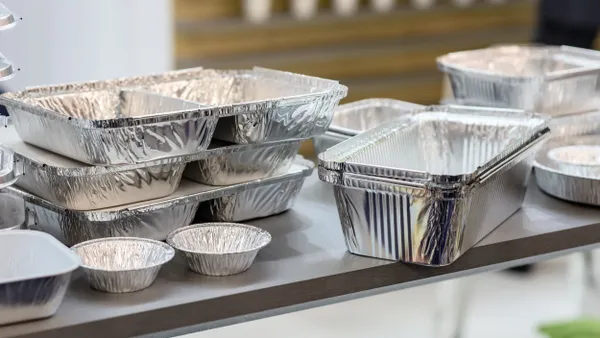The U.S. Department of Commerce on Friday issued its final antidumping duty determination for tin mill products from Canada, China, Germany and South Korea, as well as a final countervailing duty determination for such products from China.
It’s the latest development stemming from an investigation spurred by flat-rolled steel producer Cleveland-Cliffs and United Steelworkers’ antidumping and countervailing duty petitions in January 2023. Cleveland-Cliffs alleged that there had been “a significant surge” in unfairly priced — or dumped — tinplate imports “flooding the United States” in the prior two years.
Groups such as the Consumer Brands Association have spoken against such levies, saying that can manufacturers rely on imported material and that duties would raise prices on canned food and other goods for American consumers. They say U.S. steel manufacturers have the capacity to meet about half of domestic can manufacturing demand. The duty levels put forth by the Commerce Department that apply to four countries are largely at levels lower than what Cleveland-Cliffs and USW called for.
On Thursday, the International Trade Commission heard arguments in the case, including testimony on behalf of CBA and the Can Manufacturers Institute. The ITC is expected to make its final determination on Cleveland-Cliffs’ claims Feb. 6.
While the Commerce Department’s investigation focuses on unfair trade practices abroad, the ITC focuses on the impact to U.S. industry, the Friday release explained. “Only if both agencies come to affirmative final determinations can a trade remedy order and final duties go into effect.”
Following the Commerce Department’s release Friday, CBA said in a statement that the decisions “largely reject incredulous claims from Cleveland-Cliffs that would have significantly hurt consumers and domestic manufacturing jobs.”
“While we are disappointed to see any level of suggested duties on tin mill steel from ally countries like Germany, Canada and South Korea, we appreciate Commerce’s determination of no evidence of dumping from the Netherlands, Taiwan, Turkey and the United Kingdom,” said CBA President and CEO David Chavern in a statement.
CBA maintained that can manufacturers and CPGs would not have access to adequate levels of steel without importing tin mill products. CBA says that Cleveland-Cliffs does not make steel to quality and width specifications required by downstream users.
“When the International Trade Commission meets again in February to vote on this case, we can only hope that it listens to the arguments it heard yesterday during its hearing on these issues,” Chavern said. “We are confident that the facts in this case and market realities point the Commission toward a finding of no injury in this case and a complete dismissal of Cleveland-Cliffs’ misleading claims.”
Cleveland-Cliffs applauded the decisions. “Today’s announcement by the Department of Commerce is the culmination of a year-long investigation that ultimately produced the concrete determination that Canada, Germany, Korea and China are all guilty of dumping tin mill product in the U.S. market,” the company said in a Friday release, saying the duties “will provide a check against unfairly traded products from all the major sources of tin mill imports.”
“Cleveland-Cliffs will continue to work closely with the USW to advocate for an affirmative final injury determination by the International Trade Commission, which will allow us to correct the rampant unfair trade in the tin mill products industry,” said President and CEO Lourenco Goncalves. “With the heightened levels of both geopolitical uncertainty and supply chain disruptions in the world, we continue to expect disturbances in international trade. Today’s outcome should put importers on notice that the United States will not tolerate unfair trade that harms employers, workers and communities.”















